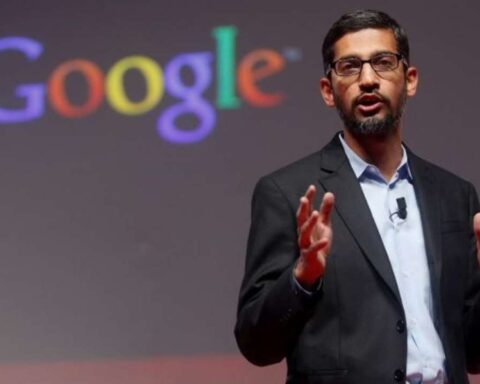Kiran Watts/ TNF
Sundar Pichai is one of the most recognized CEOs in the world, leading Google and its parent company, Alphabet. As the head of one of the largest tech companies, Pichai has helped Google grow in new directions, from artificial intelligence to cloud computing. However, like any CEO, he faces challenges and shortcomings as he navigates complex issues that affect both the company and its billions of users.
- Balancing Innovation and Privacy
One of the biggest issues for Google under Pichai’s leadership is the balance between innovation and privacy. Google has long been a data-driven company, collecting information to improve its services and personalize the user experience. But this has raised privacy concerns among users, regulators, and privacy advocates. As the public grows more aware of data privacy, Pichai has to find a way to keep innovating without violating users’ trust.
Some critics argue that Google hasn’t done enough to make its data practices transparent or to give users full control over their information. This challenge has been particularly hard for Pichai, as Google faces scrutiny from regulators worldwide who question its handling of personal data.
- Controversies Around Content Moderation
With billions of users, Google faces a tough task in moderating content on platforms like YouTube and Google Search. Sundar Pichai has received criticism for how Google handles misinformation, hate speech, and other harmful content. Some people feel the company removes too much content, while others believe it doesn’t do enough.
Striking the right balance is a delicate job, especially when Google operates in different countries, each with its own laws and cultural standards. This has put Pichai in a difficult position, as he has to manage diverse expectations while trying to maintain Google’s principles of free expression.
- Facing Regulatory Pressure
Google has grown so large that governments and regulators are starting to question its dominance. Pichai must manage the pressure from antitrust cases and regulations targeting Google’s advertising business and search engine practices. In Europe, for example, Google has been fined multiple times for anti-competitive behavior.
In the U.S., Pichai has had to testify in Congress to defend Google’s practices. Critics say Google’s size and influence stifle competition and that smaller companies struggle to compete. These legal battles are time-consuming and costly for the company, and Pichai’s handling of these issues can affect Google’s reputation and financial stability.
- Employee Satisfaction and Company Culture
Internally, Pichai faces challenges with Google’s employees, who have spoken out on issues like workplace diversity, ethics, and compensation. In recent years, there have been employee walkouts and protests over Google’s handling of harassment claims and military contracts. Pichai has taken steps to address these concerns, but managing a large workforce with diverse opinions is never easy.
Some employees feel that Pichai’s responses have been too slow or cautious, and this has led to criticism of his leadership style. Maintaining a positive and productive company culture is a crucial part of keeping Google innovative and attractive to top talent, and it’s a challenge that Pichai continues to face.
- Balancing Growth with Responsibility
Google has expanded into many areas—AI, cloud computing, smart devices, and self-driving cars. While this growth has opened up new opportunities, it also brings challenges. For example, in AI, Google is seen as a leader, but AI ethics and concerns about bias are serious issues. Pichai has to ensure that Google’s AI technology is developed responsibly, which is no easy task in a rapidly changing field.
Moreover, as Google enters new markets, Pichai must manage potential risks and ensure that the company’s growth doesn’t negatively impact users or society. The balance between driving profit and being socially responsible is tricky, and some critics argue that Google’s actions have not always aligned with its “Don’t be evil” motto.
Read Also: Google’s Employee Perks: Free Meals Fuel Creativity and Community
- The Pressure to Innovate
As the CEO of a tech giant, Pichai is expected to keep Google at the forefront of innovation. Competitors like Amazon, Microsoft, Apple, and smaller start-ups are constantly pushing boundaries, and Google must do the same to stay competitive. However, some analysts and employees feel that Google has become too slow to release new products and has lost some of its “startup spirit.”
While Pichai has led efforts to advance in AI and cloud services, Google has faced criticism for discontinuing projects too early or not taking enough risks. In a competitive tech landscape, staying innovative without burning out resources is a constant challenge.
- The Tough Job of a Tech CEO
Leading a company as large and influential as Google comes with incredible challenges, and Sundar Pichai’s role as CEO is far from easy. His job requires balancing innovation, privacy, employee needs, regulatory compliance, and social responsibility—all while steering Google toward continued growth.
Pichai’s calm and thoughtful leadership style has helped Google navigate many of these challenges, but critics argue that he sometimes needs to be bolder in addressing issues or taking risks. As Google and Alphabet continue to grow, the world will watch closely to see how Pichai tackles these challenges and shapes Google’s future.
Photo Source: Instagram












